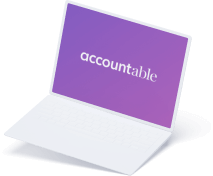
Costs for e-invoicing are temporarily 120% tax-deductible
Read in 2 minutes
Starting from 2026, all self-employed individuals will need to send their invoices electronically in a specific format. This is slightly more complex than updating an Excel or Word file, meaning both sole traders and companies will need new software and advice. Consequently, there will be a temporary increase in the deductibility of expenses to 120% for costs incurred in the context of e-invoicing. Discover all the details about e-invoicing and the increased tax deduction in this article.
Which costs are eligible for the 120% tax deduction?
The temporary increased tax deduction of 120% applies not only to costs associated with e-invoicing but also to security expenses and costs related to bicycle parking and company bicycles.
In this article, our focus is on e-invoicing, but if you’re interested in learning more about bicycle-related expenses and security costs, you can read all about it here.
In terms of e-invoicing, you’re eligible for a 120% tax deduction for advisory and software expenses. The rule specifically applies to invoicing software that allow you to create, send, and receive electronic invoices in the mandatory structured format.
💡Accountable tip: The purchase or amortization of an accounting package is not 120% deductible. The rule only applies to software with a subscription, such as Accountable.
When does this temporary measure take effect?
The 120% tax deduction for e-invoicing applies from 1 January 2024, therefore impacting the tax year 2025 onwards. This temporary change to Article 64ter is set to expire on 1 January 2028.
Hence, from the tax year 2029 onwards, the enhanced deduction for these expenses will no longer be available.
Who benefits from the increased tax deduction?
The 120% tax deduction applies to both personal income tax and corporate income tax. It is available for self-employed individuals (natural persons), liberal professions, and certain companies. The rule does not apply to companies that do not meet the definition of a small company.
Why was this measure introduced?
E-invoicing is set to become mandatory to boost efficiency and transparency in business transactions across the EU. By 1 January 2026, it will be compulsory for all Belgian companies to adopt e-invoices for B2B transactions.
Given that many businesses currently lack the required software, a temporary support measure has been implemented.
What are e-invoices?
E-invoicing is a process where businesses create, send, receive, and process invoices digitally. This requires the use of a specific format that both the sender and recipient can automatically process in their accounting software.
It doesn’t matter whether you use Accountable or another recognized program for e-invoicing.
Thanks to e-invoicing, companies can exchange invoices more efficiently and quickly. This reduces administrative burdens and significantly lowers the margin of error.
What is the PEPPOL network?
PEPPOL, short for Pan-European Public Procurement Online, is an international network for the real-time exchange of documents such as invoices. This network enables invoices to be exchanged quickly and securely in a standardized manner.
Initially, PEPPOL was primarily focused on Europe, but today, it is accessible to companies worldwide.
💡Read more about electronic invoicing for the self-employed in this article.
Enjoy a 120% deduction for e-invoicing with Accountable
Both new and existing customers can benefit from this increased 120% deduction for using our software.
New to invoicing, accounting and tax software? Try Accountable now for 14 days free. ✨
Did you find what you were looking for?
Happy to hear!
Stay in the know! Leave your email to get notified about updates and our latest tips for freelancers like you.
We’re sorry to hear that.
Can you specify why this article wasn’t helpful for you?
Thank you for your response. 💜
We value your feedback and will use it to optimise our content.










